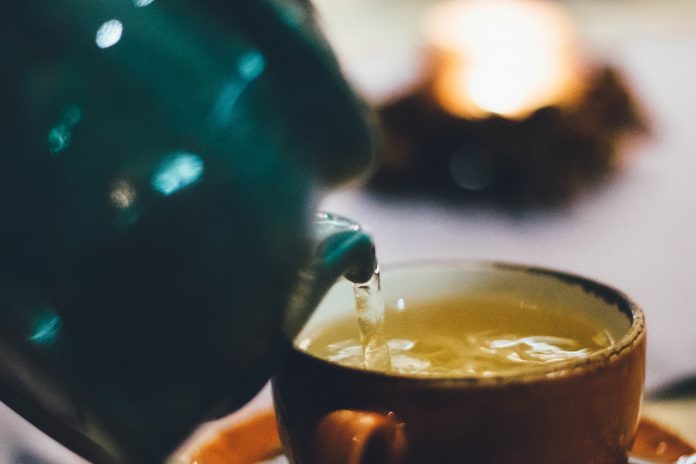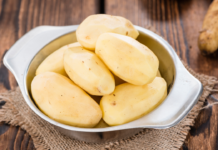Written by: Dr. Jenna Henderson
The views expressed in this article are not The Hopes or its sponsor Kibow® Biotech, they are those of the author. This article is not intended to be viewed as medical advice. Please check with your health care provider before starting to take any herbal supplements.
After transplant surgery kidney patients are given new instructions of adjustments they need to make to their diet and lifestyle. This includes a list of foods to avoid like grapefruit and pomegranate, but also includes herbal supplements. One usually finds green tea makes the list of forbidden foods. The reason given is usually that it is too immune stimulating and would be a problem as transplant patients need to have their immune system suppressed to avoid rejection. But is this in fact the case? What does the evidence show about green tea after a kidney transplant?
Herbal medicine has been around for centuries, but we should not look to herbal traditions for information when it comes to transplants. Organ transplants have only been around for a few decades and herbal foklore does not offer adequate evidence for safety post-transplant. Very few practitioners of alternative medicine are knowledgeable when it comes to transplant medicine. In addition, transplant doctors typically do not have training with botanical medicine, and when they are unsure about the safety of a supplement post-transplant, they understandably would rather err on the side of caution.
This concern about herbal supplements post-transplant is warranted. If you were to pick an herbal supplement at random, chances are it doesn’t mix well with transplant medications. These prescription medications work to prevent rejection by suppressing the chemical messenger Il-2 (interleukin 2), which turns the immune system on. Many herbs on the market raise Il-2 and have the potential to undo what the transplant medications are trying to accomplish. It’s usually best to assume an herb unsafe until we see evidence to the contrary.
Herbs touted to help boost immunity like echinacea, andrographis and reishi mushrooms are certainly contraindicated (i.e., not to be used) post-transplant. In addition, some seemingly benign herbs not necessarily associated with immunity also raise Il-2 or otherwise stimulate immunity.
| Alfalfa | Often used for blood sugar, menopausal syptoms, aches and pains, may stimulate immunity1 |
| Dong quai (Angelica sinensis) | Also called “female ginseng” is commonly used for gynecological troubles, but it raises Il-25 |
| Aloe vera (internal use) | Often used to soothe the stomach, raises Il-22 |
| Andrographis | Too immune stimulating3 |
| Ashwaghanda | Too immune stimulating4 |
| Echinacea | Too immune stimulating6 |
| Emblica (Amla or Indian Gooseberry) | Too immune stimulating7 |
| Epimedium sagittatum (Horny goat weed) | Too immune stimulating8 |
| Licorice | One of the most commonly used herbs on earth as it’s included in most Chinese herbal formulas, raises Il-29 |
| Maitake mushrooms | Too immune stimulating10 |
| Panax gingseng | Too immune stimuating11 |
| Reishi mushrooms | Too immune stimulating12 |
| Siberian gingseng | Too immune stimulating13 |
| Shiitake mushrooms | Too immune stimulating14 |
| Slippery elm | Commonly used to soothe the digestive tract or urinary tract, appears to raise Il-215 |
| Rhodiola | Too immune stimulating16 |
| Zea mays (corn silk) | Often used to soothe the urinary tract, too immune stimulating17 |
However, green tea does not raise Il-2 but in fact lowers Il-2, and may enhance the intrinsic action of transplant medications. We do have evidence that it does in fact work well in conjunction with transplant medications.18 The first major breakthrough medication for transplantation was Cyclosporine, which was later followed by Tacrolimus. These medications are classified as calcineurin inhibitors, and while they are important to prevent rejection, they are at the same time quite toxic to the kidney. This nephrotoxicity may cause elevated creatinine or protein in the urine. A 2012 study indicated that green tea reduced Cyclosporine-induced kidney injury and proteinuria.19 Another study from 2015 showed that green tea also reduced the kidney injury of Tacrolimus.20
An earlier study in 2004 with lab animals compared two groups of lab animals with transplants. The control group had transplant medications and only water to drink. The study group had transplant medications and only green tea to drink. In this scenario the group with green tea held onto their transplant graft 30% longer than the control group, as the green tea appeared to delay rejection.21
It is worth noting that green tea, black tea and white tea all come from the same plant Camilla sinensis. White tea is the immature buds of the plant; green tea comes from mature leaves that have not been allowed to oxidize, and black tea comes from tea leaves that have oxidized. Oolong is partially oxidized tea, with a chemical composition between green and black. All of these products have some antioxidants in common but there is some variance in other components. A 2007 study looked at the effect of black tea on kidney transplant patients. No problems with black tea post-transplant were noted, but there were benefits as it improved key markers of cardiovascular health.22
Green tea may be suspect in particular due to its antiviral properties. Antirejection medications turn down the branch of the immune system that fights viruses (cell mediated immunity), making transplant patients especially susceptible to viral infections. Many of the herbs noted for fighting viruses like echinacea stimulate cell mediated immunity, working against the transplant medications. Green tea does fight viral infections but works through entirely different mechanisms and not through immune stimulation.23
Green tea components known as polyphenols include five types of compounds called catechins chief of which is Epigallocatechin-3-gallate (EGCG), which accounts for more than half of the total polyphenols in dry green tea leaves. EGCG does not mount an immune defense against viruses, but works through a number of mechanisms that disrupt signaling pathways, inhibt viral attachment and entry into the target cell and decrease viral replication. The antiviral benefits of green tea have been demonstrated with Epstein-Barr, viral hepatitis, Cytomegalovirus, herpes simplex, adenovirus, influenza, HIV24 and human papillomavirus (HPV).25
The anti-cancer properties of green tea are often attributed to its high antioxidant content, but antiviral properties are also important. Many types of cancer are associated with viral infections, such as cervical cancer caused by HPV or post-transplant lymphoproliferative disorder (PTLD) which is associated with the Epstein-Barr virus.26 Transplant patients have higher rates of cancer, with more than 30 different types of malignancies that are more common in the transplant population. Some but not all of this effect is due to decreased viral immunity.
Green tea appears to prevent cancer through a number of mechanisms including neutralizing free radicals (ROS, reactive oxygen species),27 regulating DNA damage28 and inhibiting proliferation of malignant cells.29 This is especially relevant for kidney transplant patients as it has been shown to inhibit skin cancer, the most common type of cancer among transplant patients. Squamous cell carcinoma is the most common type of skin cancer post-transplant, but melanoma also occurs at high rates and is considered the most dangerous.30 Tea polyphenols appear to inhibit these cancers and there was found to be an inverse relationship between green tea consumption and incidence of skin cancer.31 EGCG appears to intercept the damaging effects of ultraviolet light through several mechanisms. Interestingly oral consumption of tea is not the only method for skin cancer prevention, as topical preparations containing green tea polyphenols may also be effective.32
Herbal medicines should be approached with extreme caution in transplant patients. But kidney patients can question if a particular herb like green tea is considered off limits because of empirical evidence that it’s harmful, or if all herbal supplements are simply being lumped together in one category. As more information becomes available about the use of botanical medicine post-transplant, we should revise recommendations of what patients can take. Green tea should not be categorized as an immune stimulant, and evidence indicates it does not pose a danger to transplant patients. Key benefits of green tea– inhibiting viral infections and preventing cancer make green tea consumption an important consideration for transplant patients.
Sponsor: Kibow® Biotech 
About the author, Dr. Jenna Henderson

REFERENCES:
1. Zhang C, Li Z, Zhang C, Li M, Lee Y, Zhang G. Extract Methods, Molecular Characteristics, and Bioactivities of Polysaccharide from Alfalfa (Medicago sativa L.). Nutrients. 2019 May 27;11(5).
2. Zhang L, Tizard IR. Activation of a mouse macrophage cell line by acemannan: the major carbohydrate fraction from Aloe vera gel. Immunopharmacology. 1996 Nov; 35(2): 119-28.
3. Sheeja K, Kuttan G. Activation of cytotoxic T lymphocyte responses and attenuation of tumor growth in vivo by Andrographis paniculata extract and andrographolide. Immunopharmacol Immunotoxicol. 2007; 29(1): 81-93.
4. Davis L, Kuttan G. Effect of Withania somnifera on cell mediated immune responses in mice. J Exp Clin Cancer Res. 2002 Dec; 21(4): 585-90.
5. Yang T, Jia M, Mei Q. [Effect of Angelica sinensis polysaccharide on lymphocyte proliferation and cytokine induction]. Zhong Yao Cai. 2005 May; 28(5): 405-7.
6. Wilasrusmee C, Siddiqui J, Bruch D, Wilasrusmee S, Kittur S, Kittur DS. In vitro immunomodulatory effects of herbal products. Am Surg. 2002 Oct; 68(10): 860-4.
7. Sai RM, Neetu D, Yogesh B, Anju B, Dipti P, Pauline T, et al. Cyto-protective and immunomodulating properties of Alma (Emblica officinalis) on lymphocytes: an in-vitro study. J Ethnopharmacol. 2002 Jun; 81(1): 5-10.
8. Liao HJ, Chen XM, Li WG. [Effect of Epimedium sagittatum on quality of life and cellular immunity in patients of hemodialysis maintenance]. Zhongguo Zhong Xi Yi Jie He Za Zhi. 1995 Apr; 15(4): 202-4.
9. Wu Y, Yi L, Li E, Li Y, Lu Y, Wang P, Zhou H, Liu J, Hu Y, Wang D. Optimization of Glycyrrhiza polysaccharide liposome by response surface methodology and its immune activities. Int J Biol Macromol. 2017 Sep;102:68-75.
10. Inoue A, Kodama N, Nanba H. Effect of maitake (Grifola frondosa) D-fraction on the control of the T lymph node Th-1/Th-2 proportion. Biol Pharm Bull. 2002 Apr; 25(4): 536-40.
11. Shin Jy, Song JY, Yun YS, Yang HO, Rhee DK, Pyo S. Immunostimulating effects of acidic polysaccharides extract of Panax ginseng on macrophage function. Immunopharmacol Immunotoxicol. 2002 Aug; 24(3): 469-82.
12. Habijanic J, Berovic M, Boh B, Plankl M, Wraber B. Submerged cultivation of Ganoderma lucidum and the effects of its polysaccharides on the production of human cytokines TNF-α, IL-12, IFN-γ, IL-2, IL-4, IL-10 and IL-17. N Biotechnol. 2015 Jan 25;32(1):85-95.
13. Steinmann G, Esperester A, Joller P. Immunopharmacological in vitro effects of Eleutherococcus senticosus extracts. Arzneimittelforschung. 2001 Jan;51(1):76-83.
14. Kim S, Park S, Lee S, Nam S, Friedman M. A Polysaccharide isolated from the liquid culture of Lentinus edodes (Shiitake) mushroom mycelia containing black rice bran protects mice against salmonellosis through upregulation of the Th1 immune reaction. J Agric Food Chem. 2014 Mar 19;62(11):2384-91.
15. Cho A, Lee S, Cho Y, Kim C, Kim S. Effects of 4-Week Intervention with Ulmus macrocarpa Hance Extract on Immune Function Biomarkers in Healthy Adults: A Randomized Controlled Trial. Evid Based Complement Alternat Med. 2018 Feb 25;2018:5690816.
16. Zhang Y, Zhang X, Yue Q, Wen Z, Zhang M. [Ethanol extract of Rhodiola rosea L. regulates the number of tumor infiltrating T cells to enhance antitumor effect in Lewis lung cancer-bearing mice]. Xi Bao Yu Fen Zi Mian Yi Xue Za Zhi. 2019 Feb;35(2):103-108.
17. Ogawa K, Takeuchi M, Nakamura N. Immunological effects of partially hydrolyzed arabinoxylan from corn husk in mice. Biosci Biotechnol Biochem. 2005 Jan; 69(1): 19-25.
18. Zhong Z, Connor HD, Froh M, Lind H, Bunzendahl H, Mason RP, et al. Polyphenols from Camilla sinensis prevent primary graft failure after transplantation of ethanol-induced fatty livers from rats. Free Radic boil Med. 2004 May 15; 36(10):1248-58.
19. Shin B, Kwon Y, Chung J, Kim H. The antiproteinuric effects of green tea extract on acute cyclosporine-induced nephrotoxicity in rats. Transplant Proc. 2012 May;44(4):1080-2.
20. Back J, Ryu H, Hong R, Han S, Yoon Y, Kim D, Hong S, Kim H, Chung J, Shin B, Kwon Y. Antiproteinuric Effects of Green Tea Extract on Tacrolimus-Induced Nephrotoxicity in Mice. Transplant Proc. 2015 Jul-Aug;47(6):2032-4.
21. Bayer J, Gomer A, Yilmaz D, Amano H, Kish D, Fairchild R, et al. Effects of green tea polyphenols on murine transplant-reactive T cell immunity. Clinical Immunology. 2004 Jan; 110(1): 100-8.
22. Ardalan M, Tarzamni M, Shoja M, Tubbs R, Rahimi-Ardabili B, Ghabili K, Khosroshahi H. Black tea improves endothelial function in renal transplant recipients. Transplant Proc. 2007 May;39(4):1139-42.
23. Butt M, Ahmad R, Sultan M, Qayyum M, Naz A. Green tea and anticancer perspectives: updates from last decade. Crit Rev Food Sci Nutr. 2015;55(6):792-805.
24. Xu J, Xu Z, Zheng W. A Review of the Antiviral Role of Green Tea Catechins. Molecules. 2017 Aug 12;22(8).
25. Wang Y, Lu J, Liang Y, Li Q. Suppressive Effects of EGCG on Cervical Cancer. Molecules. 2018 Sep 12;23(9).
26. Petrara M, Serraino D, Di Bella C, Neri F, Del Bianco P, Brutti M, Carmona F, Ballin G, Zanini S, Rigotti P, Furian L, De Rossi A. Immune activation, immune senescence and levels of Epstein Barr Virus in kidney transplant patients: Impact of mTOR inhibitors. Cancer Lett. 2020 Jan 28;469:323-331.
27. Mao X, Xiao X, Chen D, Yu B, He J. Tea and Its Components Prevent Cancer: A Review of the Redox-Related Mechanism. Int J Mol Sci. 2019 Oct 23;20(21).
28. Majidinia M, Bishayee A, Yousefi B. Polyphenols: Major regulators of key components of DNA damage response in cancer. DNA Repair (Amst.). 2019 Oct;82:102679.
29. Schramm L. Going Green: The Role of the Green Tea Component EGCG in Chemoprevention. J Carcinog Mutagen. 2013 May 20;4(142):1000142.
30. Borlinić T, Knežević T, Gellineo L, Franceschi M, Bukvić Mokos Z, Bašić-Jukić N. Melanomas in Renal Transplant Recipients: A Single-center Study. Acta Dermatovenerol Croat. 2017 Dec;25(4):281-284.
31. Oh C, Jin A, Yuan J, Koh W. Coffee, tea, caffeine, and risk of nonmelanoma skin cancer in a Chinese population: The Singapore Chinese Health Study. J Am Acad Dermatol. 2019 Aug;81(2):395-402.
32. Sharma P, Montes de Oca M, Alkeswani A, McClees S, Das T, Elmets C, Afaq F. Tea polyphenols for the prevention of UVB-induced skin cancer. Photodermatol Photoimmunol Photomed. 2018 Jan;34(1):50-59.




